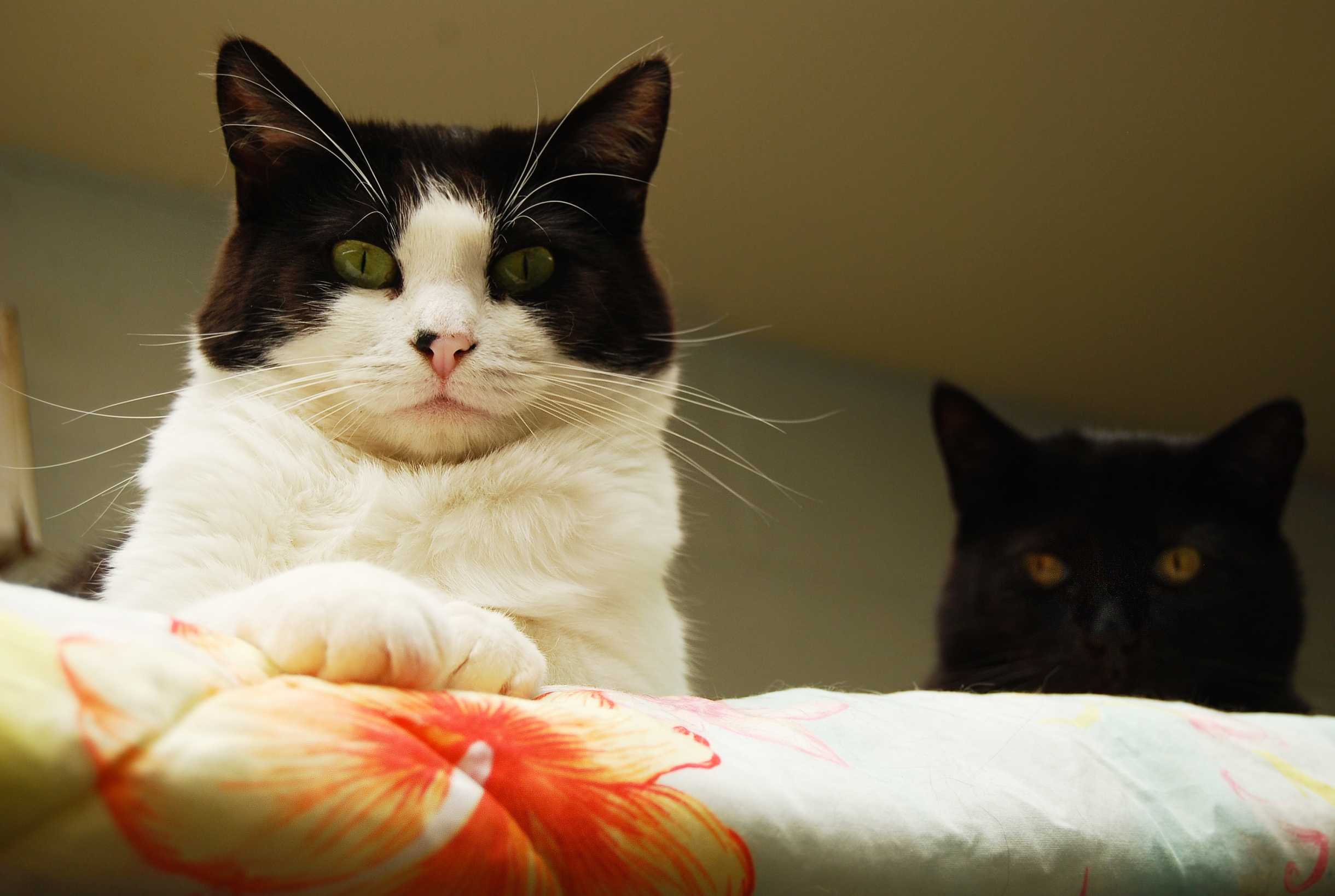A student organization that cares for cats living on campus is voluntarily making sure the animals comply with a new city law.
Beach Cats is a student organization that feeds and pays the veterinarian bills for the 30 cats living on campus. Volunteers say that since the university is state-owned, the cats on campus are exempt to a new city ordinance that require cat owners to register their cats with tags or microchips in addition to getting rabies vaccinations.
Yet the campus cat volunteers are going out of their way to comply with the new city ordinance, which takes effect July 16, after it gets signed by the mayor.
Volunteer Dorothy Durspein said she pays out of her own pocket for the cats to be fixed, vaccinated and even registered.
“Our objective is to do the best we can to take care of them,” Durspein said. “We want to get the cat population as low as possible.”
Hundreds of cats have called Cal State Long Beach their home since 1949. However, the population of these cats has decreased because of community volunteers who get them spayed, neutered and eventually adopted.
Durspein said the main reason for the decline in the campus cat population is that tamed cats are being adopted and all cats on campus have been fixed so they are not able to reproduce.
John Keisler, manager of the city’s Animal Care Services, said the reason for the new ordinance is a public health and safety issue, as well as a means toward decreasing euthanasia and the impoundment of cats.
According to Keisler, cats carry the highest amount of rabies since they roam around at night, killing wild animals. He said the city wants to put a barrier between wild animals and cats, since some residents have been affected by the disease.
“We needed to address the increasing cat population in the city,” Keisler said. “This will bring responsibility back to the owners.”
Keisler said that registering cats makes it easier for lost cats to be returned to their owners. It also prevents pet owners from dumping their cats at shelters or CSULB, which may result in a $500 fine.
Emily Munoz-Synder, a junior English major, owns two cats and recently had them both registered and micro chipped because she lost one of them before.
“I think it’s a good idea to register cats like they register dogs,” Munoz-Synder said. “I am worried if they get lost again and I [won’t be able to] find them.”
Peter Clark, a computer engineer major and dog owner, said he is in favor of cats being registered. Clark said that it is about time cats have to wear tags like dogs.
“Cats roam the city and have [kittens],” Clark said. “They come into my backyard, putting my dogs at risk.”
Keisler understands that cat registration could be a financial burden for low-income families and owners. He said there will be clinics where cat registration will be reduced after the law is implemented.
“We recommend that registration be free,” Keisler said. “At least make cat registration free for the first six months.”
Keisler said that the new registration will save the city money and will provide more resources for animal care services.
“We spend $400,000 a year, wasted on taking care of cats nobody wants,” Keisler said.
Disclaimer: The Daily 49er is not responsible for Postings made on www.daily49er.wpengine.com. Persons commenting are solely responsible for Postings made on this website. Persons commenting agree to the Terms of Use of the website. If Postings do not abide by the Rules of Conduct or Posting Regulations as listed in the Postings Policy, the Daily 49er has all rights to delete Postings as it deems necessary. The Daily 49er strongly advises individuals to not abuse their First Amendment rights, and to avoid language suggestive of hate speech. This site also encourages users to make Postings relevant to the article or other Postings.




